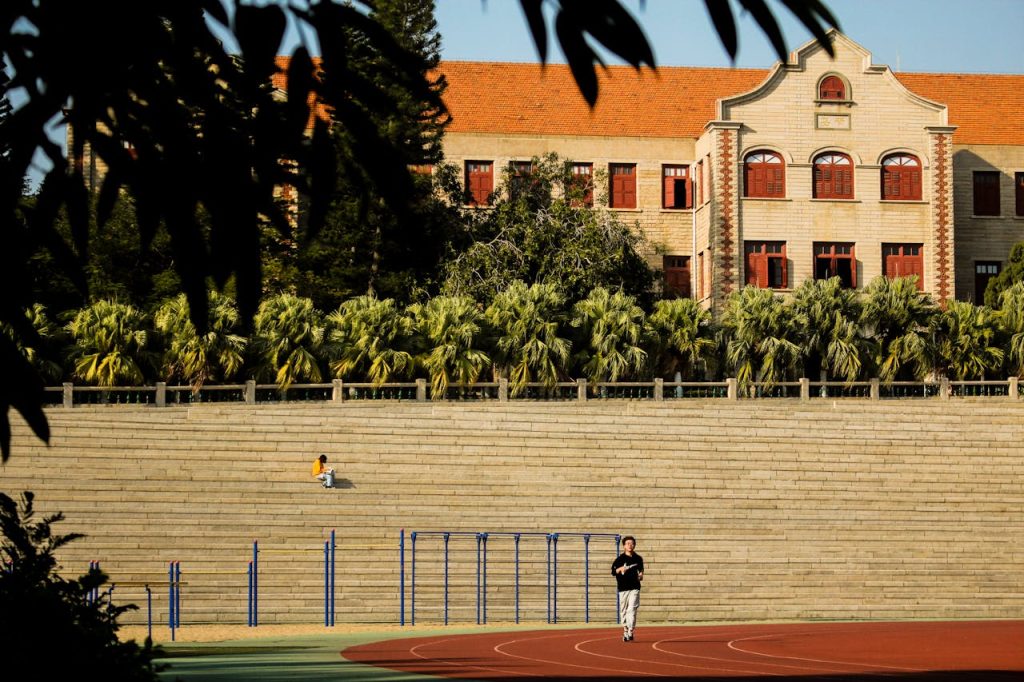
Transitioning from high school to being a Division I (DI) athlete was a journey full of surprises, lessons, and personal growth. I grew up playing basketball in the tri-state area of New York, went to a great high school in the burbs, and worked extremely hard to earn a DI scholarship playing Division I women’s basketball. The leap from high school athletics to collegiate sports is significant, and while there were areas where I felt confident, there were also a few that took me by surprise. Here’s a reflection on what I was—and wasn’t—prepared for, along with some considerations that might help athletes or an athlete you know getting ready to make this big transition.
What I Was Prepared For
- Self-Discipline: While I didn’t fully understand all of the terminology in my preseason conditioning book, I knew discipline would be my foundation for success. This drive pushed me to focus on my preparation, whether it was physical, mental, or tactical. Survival and growth at the DI level demanded laser focus and commitment—traits I had cultivated in high school.
- Self-Awareness of Talent: From an early age, I understood that there were athletes who were more naturally talented than I was. My strength lay in knowing my role, understanding my weaknesses, and finding ways to provide value to my team. Whether it was my work ethic, positivity, or reliability, I made sure my presence mattered. This mindset helped me contribute meaningfully and maintain a strong sense of purpose.
- Politics in Sports: Unfortunately, (or maybe fortunately lol) I had the opportunity to experience politics in basketball early as 4th grade. Knowing that coaches, in the past have prioritized other teammates playing time over me because of gender, pressures from other parents, or whatever the reasons were, helped me adjust to politicism at the DI level. By the time I reached the DI level, I had developed resilience and acceptance of the fact that playing time and opportunities often involve more than just skill. This perspective shielded me from taking things personally and allowed me to focus on what I could control.
What I Wasn’t Prepared For
- Self-Discipline with Food: Loving good food was one thing, but learning how nutrition directly impacted my performance was another. Without parents to guide my choices or a home-cooked meal waiting, I had to navigate the temptation of sodas, candies, and processed snacks on my own. Adjusting my diet to fuel my body—and not just satisfy cravings—became an essential part of my journey in staying healthy and keeping my weight up.
- Perspective Through Family Health Challenges: I couldn’t have foreseen how serious health challenges within my family would shift my perspective. As grueling as preseason and my first season were, they paled in comparison to the struggles my loved ones faced. This realization helped me find gratitude and privilege in the opportunity to be a student-athlete, even on the toughest days. It became a daily reminder to embrace the journey, not just endure it.
- Managing My Own Schedule: While being a high school student-athlete was demanding, the expectations at the collegiate level were a different beast. Learning to independently manage my schedule without the safety net of parents or teachers was an adjustment. Time management became a skill I had to master quickly to meet the expectations of academics, athletics, and life.
What Some Might Be Prepared For, Others Might Not
- Culture Shock: Moving to a school far from home or transitioning from a smaller environment (like my all-girls Catholic high school) to a larger university can be jarring. The social, cultural, and institutional differences require adaptability, which can be both challenging and exciting.
- Having Less Personal Time: Even with the expectation that sports and academics would dominate my time, the sheer amount of additional commitments—study hall, tutoring, treatment, film sessions, and team meetings—could feel overwhelming. Finding ways to manage these demands without burning out is crucial for any student-athlete.
- Costs Beyond Scholarships: Full-ride scholarships are a blessing, but they don’t cover everything. Missing dining hall hours meant paying for meals out of pocket. Essentials like clothing, toiletries, and other expenses that a scholarship doesn’t cover helped me realize that college is a really expensive experience. Learning to budget and manage these costs was an unexpected part of the experience.
- NIL Opportunities: Even though NIL deals have opened doors for many athletes, but they come with their own demands. Securing and maintaining partnerships often involves substantial effort, from content creation to appearances. It’s far from the instant financial windfall many imagine and requires careful time management to balance with academic and athletic responsibilities.
Transitioning to the DI level is not just about athletic skill—it’s about personal growth, resilience, and adaptability. For those preparing for this leap, understanding the challenges and embracing both the highs and lows will make the journey all the more rewarding.